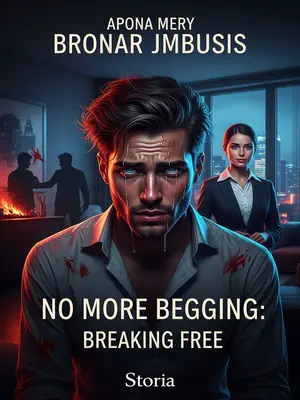Chapter 2: The Storm Gathers
In President Young’s first year, August brought the southern armies: General Grant Benson with 300,000 at Zanesville, Commander Eric Klein with 100,000 at Hamilton, and an advance force of 9,000 camped at Xenia, with Morrow nearby for support. Three lines of defense, all designed to crush David Pierce for good.
Every truck stop between Cincinnati and Cleveland buzzed with rumors—troop movements, supply convoys snaking down the interstate night and day.
Old Benson was a real veteran, a throwback to Henry Pierce’s era. He still carried a faded photo of himself shaking hands with the elder Pierce, the edges soft from years in his wallet.
David wasn’t worried. He even smiled, pointing at the map with his advisors: “Benson’s a cautious commander—that’s his strength, but it makes him slow.”
He tapped the city names with a battered ballpoint, smirking as his team leaned in.
As for strategy, he uses textbook tactics; we’ll win by surprise.
It was the oldest trick in the American playbook—win quick, win dirty, win smart.
David pointed at Xenia: “Benson sent two brave colonels as vanguard, but they’re only good for leading the way, not for holding ground.”
He circled the name, the marker squeaking against the laminated map.
David smiled, looking around: “Folks, we’re here to fix the country, not to sit in Maple Heights and wait for others to attack.”
The laughter in the room was nervous but genuine—a rare spark of hope in dark times.
This is nuts, David thought. But hell, it’s all I’ve got.
Since he was gambling, he’d gamble to the end. Benson alone couldn’t stop him!
He slammed his fist on the table, setting the plan in motion.
Break camp, surprise attack on Xenia!
The trucks rolled out at dusk, headlights off, the convoy blending into the endless Ohio fields.
No matter your three lines of defense, I’ll strike with a single force!
It was the kind of bold move that would be whispered about in bars for decades.
It was Labor Day weekend. David figured the vanguard colonels would never expect his two thousand men to strike first.
The local radio played classic rock and weather updates, no hint of what was coming.
They crossed the river by night, moonlight glinting on the water. David’s army surrounded the city at midnight, raising shouts and fires everywhere.
Neighbors awoke to chaos—the smell of smoke, the crack of rifles, the shouting of orders in the darkness.
Attacking an unprepared city with local superiority, by dawn David had taken the city and killed the colonels.
The sun rose over silent streets, the city changed forever before most had even finished their morning coffee.
But that wasn’t all. David knew the noise would alert the southern army, so he immediately set an ambush on the road, planning to take the city and defeat the reinforcements.
He’d learned the value of a good ambush from his father—never fight fair if you can fight smart.
Who could have guessed you’d attack on Labor Day and take a city in one night?
The move stunned even his own men, some of whom still had barbecue sauce on their shirts from the holiday cookout.
The southern reinforcements were still on the way when David’s men lay in wait under the White Bridge, each man hiding under reeds, waiting for the enemy to cross.
The riverbank was eerily quiet, only the buzz of mosquitoes for company.
As soon as the reinforcements crossed, they leapt out, seized the bridge, and cut off their retreat.
The element of surprise did its work—panic spread like wildfire.
David led his main force to attack. The enemy general had no choice but to surrender if he didn’t want to die.
A white handkerchief waved in the wind, the ancient sign of defeat.
With this surrender, David learned the state of the enemy’s defenses. Taking the surrendered general, he led his cavalry in a surprise attack on Morrow, tricked the gate open, and seized the city.
The ruse was simple—just a familiar face at the gate, a quick word, and then the storming of the walls.
The southern army’s 9,000 cavalry now belonged to David.
Suddenly, his small force felt much, much bigger.
After two days of lightning war, Hamilton was shaken. His men looked at David with burning eyes, suggesting he attack Hamilton next.
They wanted blood, revenge, and the thrill of another impossible win.
David shook his head.
He saw the bigger picture, knowing that raw ambition was the enemy of survival.
He pointed at Zanesville: Benson’s layered advance had failed. Shocking Hamilton wasn’t the point; we should strike straight at Benson. The old general, for caution, would surely call Hamilton’s troops to battle.
He laid out the next move, voice steady despite the exhaustion in his bones.
His men were stunned. Wouldn’t that mean fighting the southern main force, tens of thousands?
They shared uneasy glances, but waited for his explanation.
David raised his brows: “I want to fight the main force!”
He dared them to dream bigger, to bet on the long shot.
Commanding tens of thousands is not easy. Even Lincoln, who defeated Lee’s famous generals, only lost to Grant and Sherman. According to old stories, Lincoln could only command ten thousand.
The history nerds among his men nodded, remembering dusty lectures and Civil War documentaries.
Why should Benson command three hundred thousand and not be in chaos?
The room fell silent as the weight of the plan settled in.
Two days later, when David arrived seventy miles from Zanesville, his speed so shocked a southern officer that he defected on the spot.
He arrived at headquarters breathless, the disbelief plain on his face.
David thought about it and sent him back.
He offered a handshake and a promise, sending him home with a new story to tell his grandchildren.
He told him not to spread false information, just tell Benson truthfully: Xenia and Morrow are mine.
The honesty was disarming, a subtle play on the psychology of war.
David stuck to his plan, confident. The officer went back and Benson acted as expected.
Predictability, David knew, was as deadly as any bullet.
He called Hamilton’s troops for support.
A flurry of radio chatter, boots pounding the ground, orders barked late into the night.
David smiled. From Hamilton to Zanesville, they had to cross a river.
He marked the crossing in red, every detail memorized like a favorite song.
While the southern army was crossing, David’s army attacked. Benson, still relying on superior numbers, left the city to help, chasing after David’s army.
The chaos of moving men and machines gave David all the opening he needed.
A great battle began.
Smoke curled above the fields, the sound of gunfire echoing for miles around.
Though Benson had overwhelming numbers—six or seven times David’s army—sixty or seventy thousand were crossing the river, and the rest needed time to deploy. David was exploiting this timing.
He’d always believed in striking while the iron was hot, no matter the odds.
While they were deploying, he sent a surprise force to the southern army’s camp, aiming for a weak spot. If he broke one formation, the retreat would jam the city gate.
The oldest rules of crowd control played out in deadly earnest.
Tens of thousands jammed at the gate—of course, the trampling caused huge casualties.
Men screamed and scrambled, chaos feeding on itself until order was lost entirely.
Benson didn’t notice David’s surprise force. Or even if he did, he couldn’t respond effectively.
His command staff tried in vain to untangle the mess, radios crackling with desperation.
He couldn’t ignore the troops across the river, nor could he coordinate his men to block David’s army in waves.
Divided attention was a fatal flaw.
Simply put, David was too fast for Benson to react.
He moved like a ghost, striking and vanishing before anyone could pin him down.
When the surprise force broke through the empty west gate camp, David split his forces, attacked the southern army at the river, then turned back to hit Benson. Surrounded front and back, Benson was defeated, losing over thirty thousand men and more than twenty thousand trucks, their bodies piling up outside Zanesville.
The aftermath was brutal—survivors staggered through the mud, the air thick with the scent of loss and diesel fuel.
As for the reinforcements across the river, they were struck midway and dared not cross again.
No one wanted to be the next to fall to David’s lightning tactics.
After besieging Zanesville for two days, David knew his men couldn’t storm the city, so he swaggered away, returning to Maple Heights to consolidate his gains.
He left a few mocking notes pinned to the city gates—a reminder that he’d been there, and could return at any time.
From Maple Heights’ departure to Benson’s defeat, it took just fourteen days.
A record for the history books, if anyone dared to write them.
The southern army was shaken. President Young even began to doubt himself, but soon regained his confidence.
The halls of power in D.C. echoed with arguments and counterarguments, but the president clung to his certainty.
David was already so fearsome—if I hadn’t first reduced the other rivals, and they’d rebelled together, I wouldn’t have had Lincoln’s luck.
He told this to every advisor who’d listen, always adding, “See? I was right.”
Luckily, I dealt with the others first—how clever I am!
He even allowed himself a smile, rare as it was these days.
Anyway, David can’t storm cities. His base is only Maple Heights. If 300,000 isn’t enough, send 500,000. Can’t take one Maple Heights?
He drew new lines on the map, each one bolder than the last.
The old general was sluggish, so he lost. Let’s send a younger one.
It was time to let the next generation prove their mettle.
Duke of Carson, Lucas King, in his prime, with great training results—he’ll do!
Lucas King, the golden boy of D.C., known for his crisp uniforms and winning smile, was suddenly the nation’s best hope.
The president was confident, sending out his ace, Lucas King.
He shook Lucas’s hand in the Oval Office, the flashbulbs popping as if this was already a victory parade.
Lucas was helpless. He’d played with David since childhood and really didn’t want to fight him. But his family was in D.C., he had a title, and the president commanded—he had to risk his life.
The old high school yearbook photos now seemed like relics from another world.
Childhood friends are nothing compared to federal orders.
Duty trumped nostalgia—Lucas knew it, and so did David.
Lucas was experienced in training, but not in battle.
His confidence came from simulations, not scars.
So when the president gave him 500,000 men and sent him north, even though logistics weren’t ready, Lucas, relying on his training, brought the men to the front at Dayton, but didn’t dare act rashly.
He set up camp by the river, double-checked every supply manifest, and waited.
Even when the southern troops sent to harass Maple Heights’ east side were fighting at Pine Bluff, Lucas didn’t move.
He watched from afar, afraid to make the first mistake.
Of course—this was David Pierce. Lucas knew how fierce his childhood friend was.
He remembered old football games, the way David always turned a losing play into a touchdown.
Lucas knew David, and David knew Lucas.
Their rivalry was as old as American rivalry itself: brothers on different sides of a battle line.
If Benson could command 100,000, but with 300,000 could only move cautiously, then Lucas, with 300,000, would have each unit fighting separately.
David scribbled numbers in his notebook, anticipating every move.
Give him 500,000, and disaster was certain.
Too many moving parts, too little experience.
And David knew Lucas was timid.
He counted on it.
In the Pierce estate, David gathered his advisors and brought his son, looking around: “This is an opportunity. As long as I am in Maple Heights, Lucas won’t dare attack. So if I leave to help Pine Bluff, Lucas will surely come, and the southern commander at Pine Bluff, being timid, will surely run.
With a strong city ahead and my army behind, Lucas will surely lose!”
He let the silence that followed speak for itself.
The son looked at his father, wanting to speak.
He opened his mouth, then shut it—some lessons are learned in silence.
But what if we can’t hold?
The doubt gnawed at him, but he kept it to himself.
With 500,000 attacking Maple Heights, losing is normal.
He rehearsed every possible outcome in his head, knowing the odds.
But the son said nothing. He knew if his father didn’t leave the city and only defended, even if they survived, it would just buy a few more days.
He steeled himself, determined to do his part.
Live or die, let’s do it.
It was the American spirit distilled: fight even when there’s no chance.
But he didn’t expect his father to really dare. David’s raid wasn’t to drive off the southern army at Pine Bluff; he rushed there, the southern commander ran, but David didn’t turn back to encircle Lucas.
He kept moving, never letting the enemy settle.
Lucas’s army camped at Greenfield, sending wave after wave against Maple Heights.
Every hour, another attack—shells bursting, walls trembling, the city holding on by a thread.
One general, Quentin Nelson, father and son, led assaults, even breaking the city gate at one point. If Lucas hadn’t tried to take all the credit, or tried to lure David back, and had sent reinforcements, the son might not have retaken the gate.
The battle became personal, every street a contest of will.
In those days, the son was exhausted; everyone in Maple Heights became a fighter.
Even the janitors and schoolteachers took up arms, fighting for every block, every home.
Mrs. Pierce herself went to the walls to defend, Grant devised many plans: night raids, pouring water to freeze the walls so the southern army couldn’t climb, barely holding Maple Heights.
It was a test of ingenuity as much as courage—every household contributed what they could.
So what was David doing?
He went to raid Danville.
He disappeared into the night, a ghost with a mission.
He was always both crazy and calm, a gambler, but very clear about his odds.
His team called him reckless; his enemies called him unstoppable.
With these troops, even if he defeated Lucas’s 500,000, he couldn’t inflict real damage. If Lucas regrouped, he could attack again anytime.
It was like trying to bail out a sinking ship with a thimble.
So where to find more troops?
Danville.
The answer had always been close—family, blood, loyalty.
Nick Pierce’s Three Guards were rare elite cavalry, tens of thousands who’d stood by. Only by bringing them over could David turn a one-in-a-million chance into a one-in-a-million chance.
He knew the numbers by heart, reciting them like a prayer.
David: “…”
He sighed, feeling the weight of every gamble.
Anyway, just to slightly improve the odds. With such a small base and few troops, how could a governor’s son’s rebellion have even a 20% chance?
Sometimes, you fight not for odds, but for the chance to fight at all.
David knew, but he gambled anyway.
It was the only way forward.
To gamble is to die; not to gamble is also to die. Even with no chance, he fought to the death.
Every American hero, from Gettysburg to the Alamo, would have understood.
He sent people everywhere to find a route and finally found a small path, leading a small elite force straight to Danville. The city’s defenders were caught off guard, and David forced his way in.
The night was thick with fog and fear, but his men pressed on.
But would Nick Pierce or the administration’s troops in Danville really let David take the city so easily?
Not a chance—family never makes it easy.
So David never planned to take the city.
He only brought a small force to ensure his own safety, then went to Nick’s house, weeping and begging his brother to save him, give him a way out.
He dropped every last ounce of pride at the door, falling to his knees if he had to.
He cried and wailed—Nick wasn’t Nathan Young, so how could he bear it?
Family is family, no matter the war.
Nick didn’t attack, and the Three Guards, loyal to him, didn’t move either. Only the administration’s troops loyal to Nathan Young looked at the situation and pretended not to see.
Sometimes, doing nothing is its own act of rebellion.
Thus, David stayed in Nick’s house for two days.
They played cards, reminisced about childhood, anything to avoid talking about what came next.
No one knows what they talked about. Maybe David said, “Brother, lend me some troops.” Nick replied, “Brother, if I don’t lend you troops, you’ll die and I’ll be next. But if I do, my whole family might die now.”
The conversation was probably half-whispered, full of old wounds and new fears.
What could David do? He had no choice but to leave Danville, crestfallen.
He tipped his hat to the housekeeper, hugged his brother hard, then slipped away before dawn.
When he left, Nick felt guilty and saw him off outside the city.
The administration’s confidant, named Jared, was just













